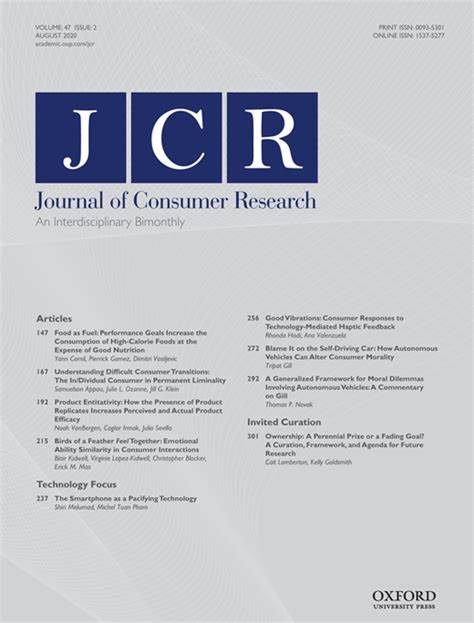市场残疾无障碍的隐性障碍:对认知权衡作用的实证分析
IF 5.7
1区 管理学
Q1 BUSINESS
引用次数: 2
摘要
残疾是人类的一种基本状况,影响着世界上很大一部分人口,然而,许多与残疾和无障碍相关的问题仍然迫在眉睫,却没有得到充分解决。目前的研究通过三项实验,调查了市场中残疾人无障碍环境尚未被普遍接受的潜在原因。在微观(即消费者)和宏观(即企业、政策或社会)层面,提高市场无障碍性的潜在障碍可能是由于这些努力与其他突出的优先事项相冲突。在所提出的框架和由此产生的实验中,微观层面的权衡会引发个人成本观念,宏观层面的权衡会引发企业道德观念。反过来,这些感知又会对企业的评价起到中介作用,从而显示出消费者对可及性的负面反应。然而,重要的是,从这些过程中产生了一些实际的干预措施。营销人员可以通过简单的框架选择来减轻消费者对无障碍性的负面反应,例如强调谁能受益或指出提供产品的目的是什么。本研究展示了一种更好地了解所有消费者看法的方法,为消费者研究人员今后进一步深入开展与残疾相关的研究提供了途径。本文章由计算机程序翻译,如有差异,请以英文原文为准。
Hidden Barriers to Marketplace Disability Accessibility: An Empirical Analysis of the Role of Perceived Trade-Offs
Disability is a basic human condition that affects a significant proportion of the world’s population, yet many disability- and accessibility-relevant issues remain pressing and insufficiently addressed. With three experiments, the current research investigates potential reasons for why marketplace disability accessibility has not been universally accepted. Potential barriers to greater accessibility in marketplaces may arise because such efforts appear at odds with other salient priorities, at micro (i.e., consumer) and macro (i.e., firm, policy, or societal) levels. In the proposed framework and resulting experiments, micro-level trade-offs prompt perceptions of personal cost and macro-level trade-offs prompt perceptions of firm morality. In turn, these perceptions mediate firm evaluations, showing that consumers at baseline respond negatively to accessibility. Critically, however, several practical interventions emerge from these processes. Marketers can mitigate consumers’ negative responses to accessibility by employing simple framing choices such as emphasizing who benefits or noting what the purpose of the offering is. By demonstrating one way to better understand perceptions of the full spectrum of the consumer population, this research provides pathways for consumer researchers to further delve into disability-related research in the future.
求助全文
通过发布文献求助,成功后即可免费获取论文全文。
去求助
来源期刊

Journal of Consumer Research
BUSINESS-
CiteScore
12.00
自引率
9.70%
发文量
53
期刊介绍:
Journal of Consumer Research, established in 1974, is a reputable journal that publishes high-quality empirical, theoretical, and methodological papers on a wide range of consumer research topics. The primary objective of JCR is to contribute to the advancement of understanding consumer behavior and the practice of consumer research.
To be considered for publication in JCR, a paper must make a significant contribution to the existing body of knowledge in consumer research. It should aim to build upon, deepen, or challenge previous studies in the field of consumption, while providing both conceptual and empirical evidence to support its findings.
JCR prioritizes multidisciplinary perspectives, encouraging contributions from various disciplines, methodological approaches, theoretical frameworks, and substantive problem areas. The journal aims to cater to a diverse readership base by welcoming articles derived from different orientations and paradigms.
Overall, JCR is a valuable platform for scholars and researchers to share their work and contribute to the advancement of consumer research.
 求助内容:
求助内容: 应助结果提醒方式:
应助结果提醒方式:


